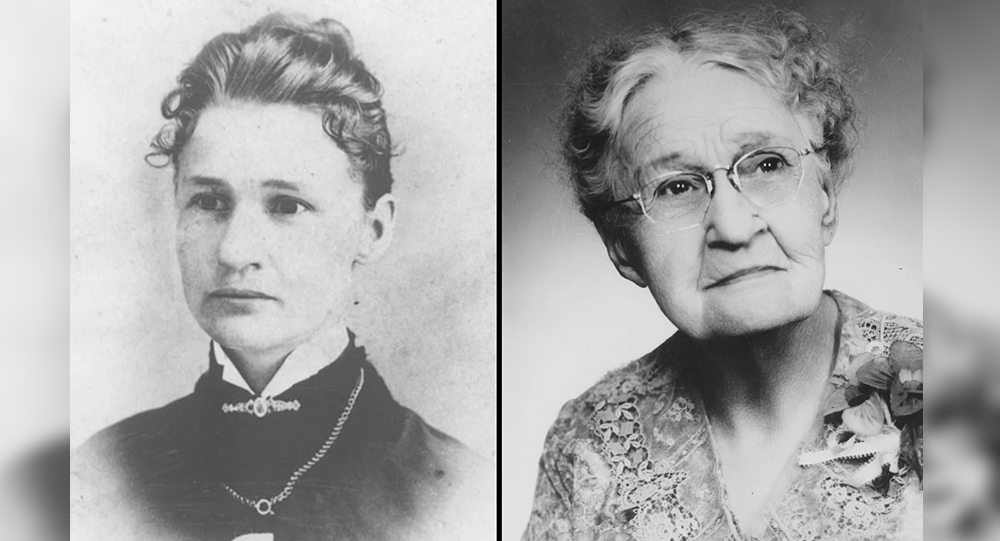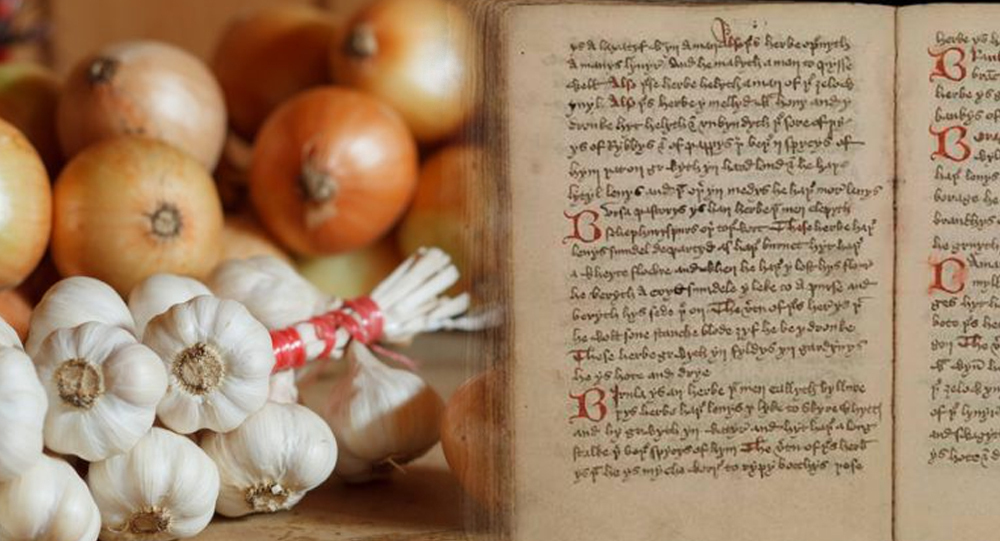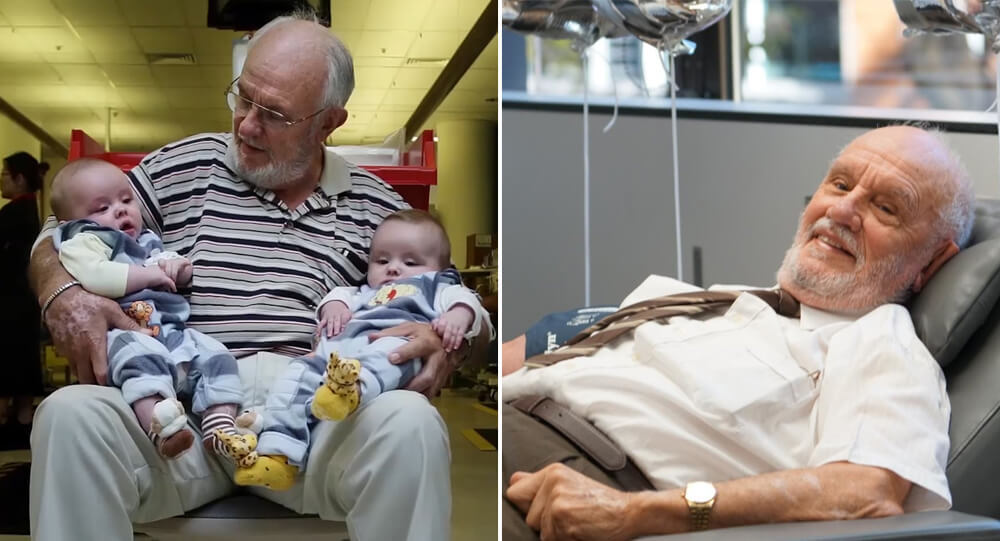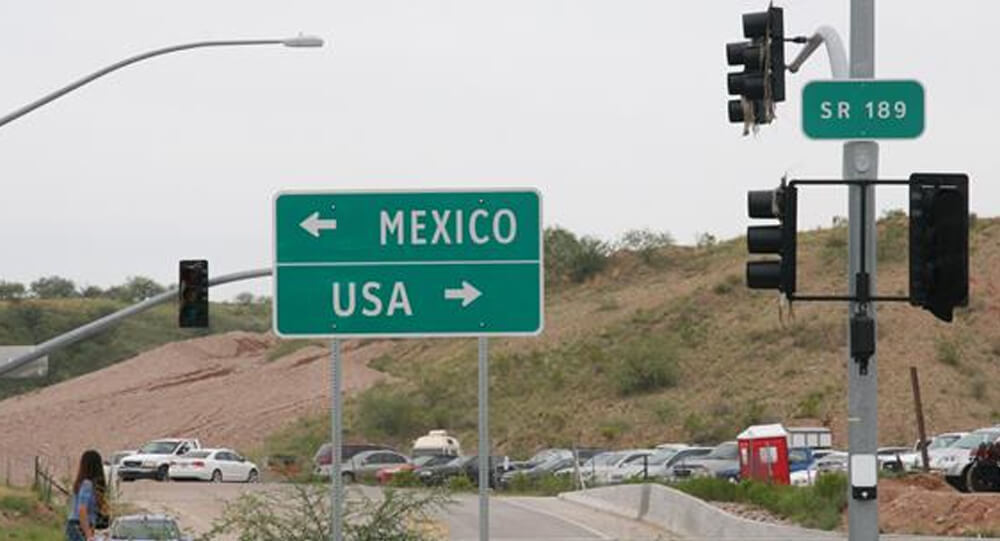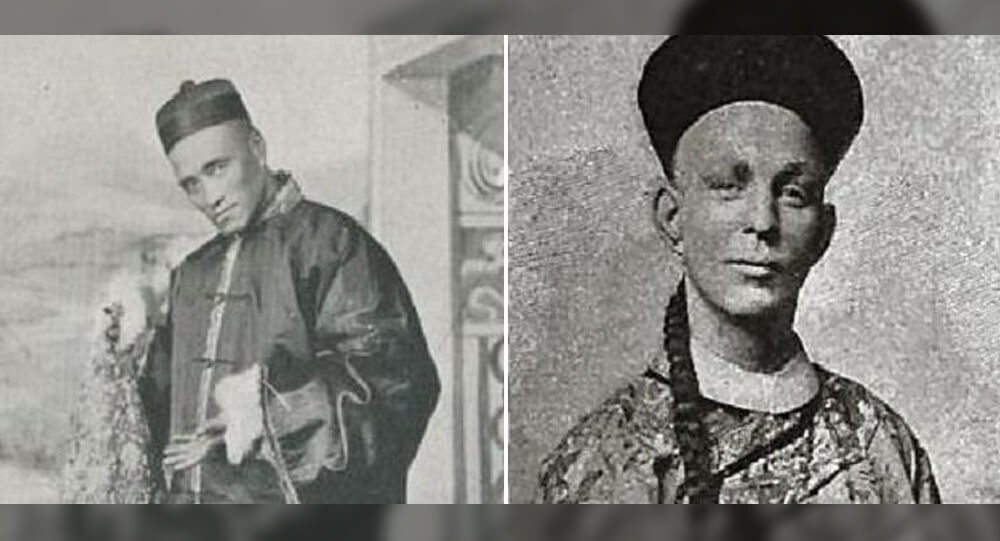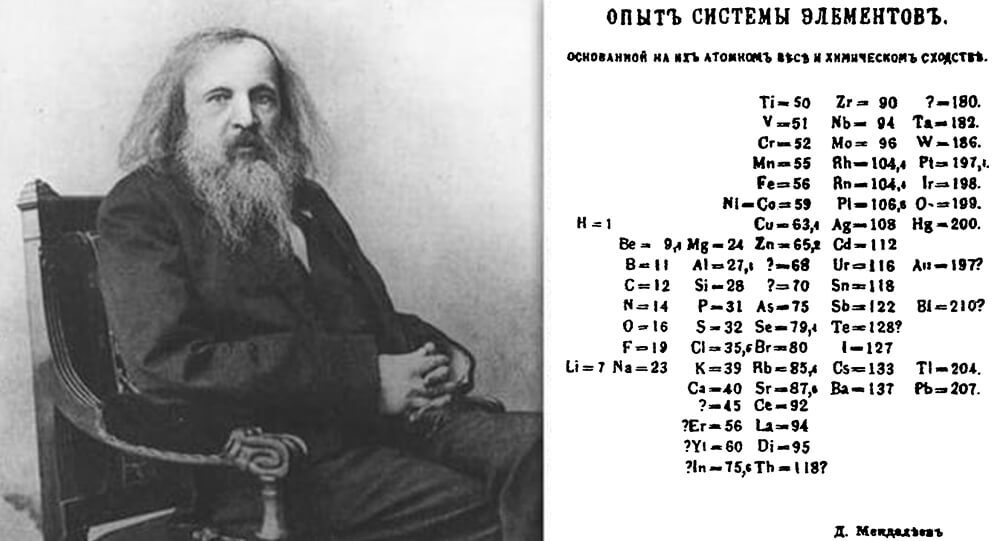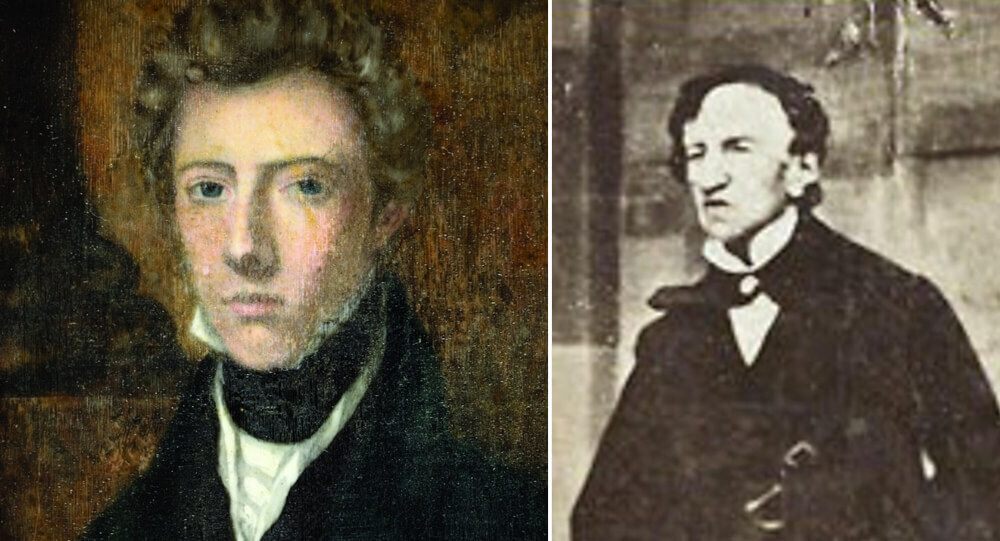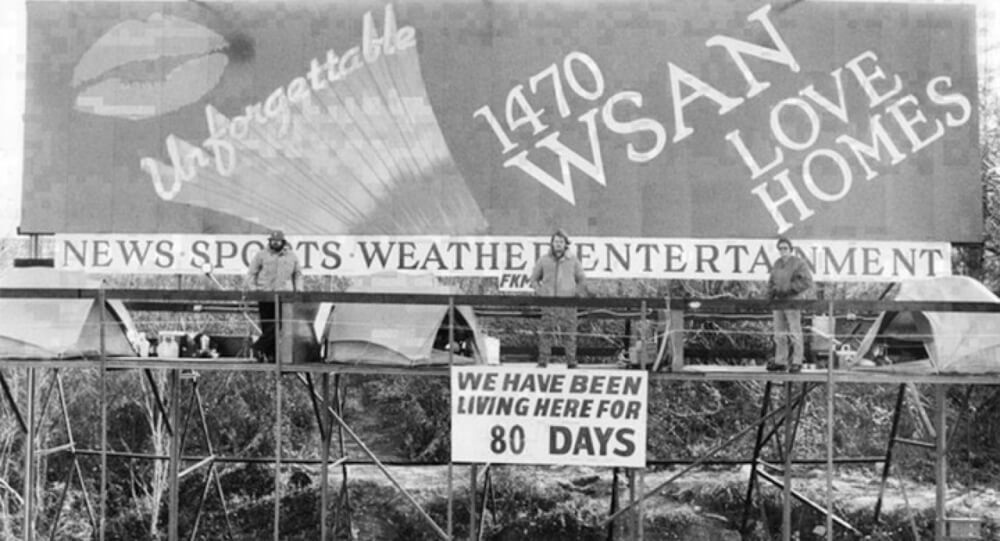
Forty years ago, a radio competition began in the Lehigh Valley and resulted in a worldwide media frenzy.
In an attempt to gain publicity, the staff of Allentown radio station WSAN-AM, which was undergoing a rebranding, decided to hold a contest on September 20, 1982.
It was dubbed a “endurance contest,” with three participants competing to see who could spend the longest on the platform of a WSAN billboard located in Whitehall Township, across from the Lehigh Valley Mall, off of Route 22.
A new mobile home would be awarded to the winner.
However, the competitors turned out to be more serious than anticipated, and it took 261 days, a drug bust, and entreaties from government officials to bring the competition to an end.
Ned Teter, a WSAN radio DJ who worked the entire competition, said, “We were all taken a little off guard.”
“You do realize that this occurred long before social media, cell phones, or anything else like that? In 1982, nothing becomes viral. However, this was picked up by a few major publications, and after that, there were waves upon waves of coverage.
A housing crisis
The contestants were:
Mike MacKay was a newlywed in his first year of marriage and had a job. In a 2017 documentary titled “Billboard Boys,” it is stated that MacKay submitted 47,000 contest entries to WSAN, stating that he was unable to afford housing even with a steady job. In 2006, MacKay passed away.
It is purported that Dalton Young entered roughly a thousand contests shortly after his release from the United States. military. While residing on the billboard, he was ultimately taken into custody by an undercover police officer for marijuana-related offenses.
There are rumors that Ron Kistler submitted 4,004 entries to the WSAN office. He claimed in the documentary that he was only competing for a house, not for attention.
For more than a year, the competitors occupied the billboard platform equipped with space heaters, tents, toilets, phones, radios, and even a pulley system that allowed loved ones to bring them food and other necessities.
Housing shortages in the Lehigh Valley in the early 1980s contributed to the competitors’ devotion. Mobile homes were not affordable because the region’s manufacturing industry was in decline, despite their valued $18,000 (roughly $55,000 today).
Teter remarked, “These were three guys that, you know, they’re out of work.” These unfortunate people served as a symbol of the era. In 1982, we were in the epicenter of the Rust Belt, where jobs were limited.
One person who is familiar with the story well claims that the Lehigh Valley’s current affordable housing crisis isn’t all that different.
The 2017 documentary “Billboard Boys” about the radio competition was directed by Pat Taggart.
According to Taggart, “there isn’t enough housing on the market, and prices are sky high. We have a different housing crisis today.” “Thus, while different, there is still a significant gap between the wealthy and the poor, as well as extreme economic stress both then and now.”
Public opinion sours
According to Taggart, the Lehigh Valley’s public sentiment toward the men on the billboard grew sour during the competition.
After about six months, the police accused Young of being a marijuana dealer while residing on the billboard. The Lehigh Valley residents then began to grow irritated with the competition.
“People’s perception had significantly changed from finding this fascinating and cool to thinking it was a disgrace to the Lehigh Valley,” according to Taggart. People driving by stopped to stare at the men on the billboard, saying, “You know, guy’s dealing drugs up there, and there was fender benders constantly,” Taggart said. Taggart said bystanders also used to hang out and party at the base of the billboard all night long and it was common to find empty beer bottles and other garbage underneath it in the mornings after a weekend.
An abrupt end
The competitors on the billboard were a constant source of pressure.
Following Young’s arrest and elimination from the competition, Taggart remarked, “You have two guys left – Mike MacKay and Ron Kistler.” “And they just stayed, making it very evident that they had no intention of leaving without a place to live.”
According to Taggart, the competitors’ focus shifted toward the end of the competition from competing against each other to competing against the radio station.
On June 7, 1983, WSAN and the contest’s sponsor, Love Homes, gave in to public and political pressure.
They offered a free vacation, a Chevy car, and a mobile home to each of the two surviving competitors.
That was the end when MacKay and Kistler descended from the billboard simultaneously.
The story will hopefully still be made into a feature film, according to director Pat Taggart.

The 1976 April Fools' Pranks, Planetary Alignment
On April fool's Day, 1976, the BBC convinced many listeners that a special alignment of the planets would temporarily decrease gravity on Earth. Phone lines were flooded with callers who claimed they felt the effects.

Susanna Salter: The Trailblazing Story of America’s First Female Mayor
In 1887, Susanna Salter became the first female mayor in the United States, elected in Argonia, Kansas. Her nomination was initially a prank by men opposing women in politics. However, she won by a landslide and served effectively, inspiring the women’s suffrage movement and breaking barriers for women in leadership.

Medieval Medicine: A 1,000-year-old onion and garlic salve kills modern bacterial superbugs
Scientists recreated an Anglo-Saxon manuscript-based 9th century onion and garlic eye remedy and discovered that it killed 90% of antibiotic-resistant staph bacteria (MRSA).

Philippines, the largest supplier of Nurses in the World
Philippines is the world’s largest supplier of nurses, supplying roughly 25% of all overseas nurses worldwide.

How Cleveland's Balloonfest in 1986 Turned Into a Public Tragedy
In Cleveland, Ohio, United Way broke the world record by deflating nearly 1.5 million balloons as part of a publicity stunt to raise money. The balloon obstructed a US Coast Guard search for two boaters who were subsequently discovered to have drowned, blocked airport runways, and blocked land and waterways.

Marion Stokes recorded 30 years of television
Marion Stokes, a Philadelphia woman began taping whatever was on television in 1979 and didn’t stop until her death in 2012. The 71,000 VHS and Betamax tapes she made are the most complete collection preserving this era of TV. They are being digitized by the Internet Archive.

Man's Blood Helped Save Millions of Babies
Australian blood donor James Harrison has been one of our most impressive and valued donors, having donated for 60 years. Know his story, how he was a pioneer of our Anti-D program, and why this matters.

Nearest Green, America's first known Black master distiller
Nathan "Nearest" Green was an African-American head stiller who is now more frequently referred to as a master distiller. He was renowned for imparting his distilling knowledge to Jack Daniel, the creator of Jack Daniel's Tennessee whiskey distiller, after Jack Daniel was freed from slavery following the American Civil War.

George Dantzig solved two famous “unsolved” problems in statistics mistakenly as assignment
In 1939, George Dantzig arrived late to his statistics class. On the board were two famous “unsolved” problems in statistics written as an example by his professor. Dantzig mistook the examples for homework assignments. He solved the “unsolved” problems and submitted the homework to his professor a few days later. His solutions earned him a doctorate.

Ancient Jericho: The First Walled City In History
The ancient city of Jericho is the world's oldest walled city, with evidence of stone fortifications dating back nearly 9000 years.

The incredible story of a plane that lost its roof in mid-flight and the light signal that saved 94 lives.
On April 28, 1988, Aloha Airlines flight 243 was on the way to Honolulu from Hilo when a huge portion of the upper part of the fuselage blew off the airplane.

From Flapper to Fashion Week: How 1920s Style Still Shapes Modern Trends
The roaring 1920s revolutionized fashion, introducing bold styles, daring cuts, and a spirit of freedom that still inspires today’s wardrobes. From flapper dresses to statement accessories, here’s how the Jazz Age lives on in modern fashion.

New London School Explosion, Deadliest school disaster which killed almost 300 children and teachers
In 1937, a gas leak in the basement at the local school in New London, Texas caused a massive explosion which killed almost 300 children and teachers, the deadliest school disaster in US history. Adolf Hitler even sent his condolences by telegram.

Blanche Monnier: Imprisoned For 25 Years For Falling in Love
Blanche Monnier, she was a French woman noted for her beauty, she wished to marry an old lawyer that her mother disapproved of, so she locked her in a small dark room in her attic for 25 years.

Underground Railroad to Mexico freed thousands of slaves in 1829
Slavery was abolished in Mexico in 1829. Slaves were escaping to Mexico, and slaveholders in the US were aware of this. The US attempted to get Mexico to sign a fugitive slave treaty, which would have required Mexico to send back escaped slaves to the US. But, Mexico refused, arguing that slaves were free as soon as they set foot on Mexican soil.

The Bizarre (And Magical) Duel Between Chung Ling Soo And Ching Ling Foo
Ching Ling Foo and Chung Ling Soo were two magicians from the early 20th century who were bitter rivals. While Ching Ling Foo was genuinely Chinese, Chung Ling Soo was actually a New Yorker named William Robinson.

How Dmitri Mendeleev Developed the periodic table of the elements
1850 Dmitri Mendeleev walked almost a thousand miles to Moscow so he could apply for the University of Moscow. Although he was not accepted, he walked to St. Petersburg where he was accepted, And with that education, he developed the the periodic table of the elements

Before Radar: How Giant Acoustic Mirrors Detected Enemy Aircraft in WWI and WWII
Long before radar revolutionized air defense, enormous acoustic mirrors and specialized sound locators stood as the first line of defense against enemy aircraft. Designed as giant “ears,” these structures amplified distant engine noises, allowing operators to detect incoming planes by sound alone. Dive into the intriguing world of these pioneering listening devices, their operation, limitations, and enduring legacy in military history.

During the 1996 Olympic bombing, Richard Jewell falsely accused of committing the crime after saving dozens of people
Richard Jewell, an American security guard, discovered a bomb during the 1996 Olympic Games in Atlanta and assisted in the evacuation, but was later wrongfully accused and faced public scrutiny. He was cleared, but it had a lasting impact on him until his death in 2007 at the age of 44.

15 interesting facts about Queen Elizabeth II
Queen Elizabeth II, who ruled Britain for 70 years, has away at the age of 96. She was the country's longest-reigning monarch. Here are some little-known facts about her.

Tunnels Dug by ancient giant sloths, A South American Megafauna
For years, scientists didn’t know what caused mysterious cave networks in South America. In 2010, they learned that the caves were actually tunnels dug by ancient giant sloths

Why the Word ‘Pen’ Comes from the Latin ‘Penna’ Meaning Feather
The humble word “pen” carries a rich history rooted in ancient times, derived from the Latin word penna, meaning “feather.” Long before modern pens revolutionized writing, feather quills—especially from geese—were the essential tools of scribes, scholars, and artists. This article journeys through the origins of the pen, its evolution, and fascinating trivia about the timeless connection between feathers and writing.

Nicholas Winton ‘British Schindler’: Man who rescued 669 Czech children from Nazis
A man named Nicholas Winton saved 669 kids during WWII and lived almost all his life without letting people know.

Did Gil Pérez Really Teleport from Manila to Mexico Overnight? The 1593 Mystery
On October 24, 1593, while performing his guard duties at Manila's Governor's Palace in the Philippines, Gil Perez stopped to lean against a wall and sleep for a while. He opened his eyes to find himself in an unusual environment. Gil was in the Plaza Mayor in Mexico City. They imprisoned Perez, but the authorities in Mexico City decided to release him and return him home.

The mysterious secret of Dr James Barry
Before women were allowed to enroll in medical school, Margaret Ann Bulkley studied medicine and assumed the identity of Dr. James Barry for 56 years while dressing as a man. After 46 years of service as an army doctor officer, her secret was not made public until after her death in 1865.

